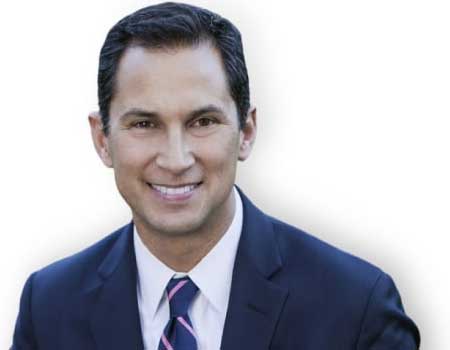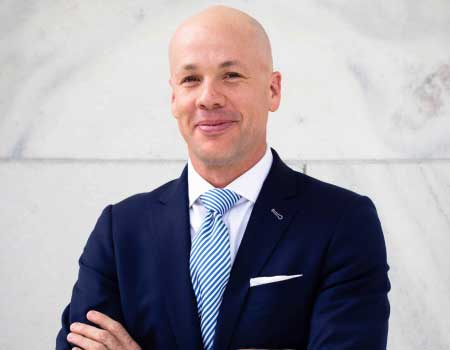Bloomberg Government
Ferox Strategies Principal Mark Williams was featured in the Bloomberg Government article, “Lobbyists Seize on Red State Fallout in Pushback to Trump Plans.”
“You try to explore all tactics to be successful for your clients. That certainly can be highlighting activities that are happening in red states or districts to push lawmakers one way or another,” said Mark Williams, a principal at Ferox Strategies and before that a GOP aide on Capitol Hill.
Lobbyists Seize on Red State Fallout in Pushback to Trump Plans
By Kate Ackley
February 20, 2025
- K Street strategy warns of impact for GOP districts
- Tariffs, tax credit changes could hit conservative turf
Lobbyists are shifting messaging to increasingly warn about potential harm to red-state voters from President Donald Trump’s policies and cost slashing.
The job of lobbyists boils down to bringing money and a favorable operating climate to their clients and to preventing harm. One month into the new Trump administration the industry is quickly adjusting its strategy.
“You try to explore all tactics to be successful for your clients. That certainly can be highlighting activities that are happening in red states or districts to push lawmakers one way or another,” said Mark Williams, a principal at Ferox Strategies and before that a GOP aide on Capitol Hill. Ferox clients include Walmart Inc., Diageo North America, and Viatris Inc., according to recent congressional lobbying disclosures.
K Street’s largely focused on Republican-controlled districts, where they would have the most impact with Congress and the White House. Advocates are taking a delicate approach – sharing jobs and economic data with members of Congress – as they seek to push back, rather than launch an all-out war with the new administration and GOP Congress over cuts and changes. They also are relying on Republican lawmakers to help them out with legislation. This approach may help lobbyists protect their business and help companies shield themselves from the fast-moving push to downsize government.
Red State Worries
Red states stand to lose jobs. Louisiana, home to the top two House GOP leaders, is among several red states with the most per capita in federal contracts and grants, according to Bloomberg Government and USAspending.gov data.
Moreover, steel and aluminum tariffs may hit red states harder than Democratic districts. GOP-maligned tax credits for wind, solar and other renewable power sources could cost jobs and investment in rural Republican areas and red states such as Texas, according to some industry data. Cuts in funding and personnel at national parks will ripple into Republican areas, lobbyists said.
Elon Musk’s Department of Government Efficiency plan to dismantle the US Agency for International Development could affect American farmers who sell to its food aid programs.
Sen. Jerry Moran (R-Kan.) introduced legislation (S. 525) that would move food aid from USAID to the US Agriculture Department. Other red-state Republicans on the measure include Sens. John Hoeven (R-N.D.) and Roger Marshall (R-Kan.) and Rep. Tracey Mann (R-Kan.)
“Kansans generally want to see that government is smaller, more effective, more efficient, and so they’re looking to see how this allows that to happen,” Moran said.
Trump administration tariffs, too, can hit rural districts and red states. Kansans “always worry about retaliatory tariffs,” Moran said.
Some lobbying interests are putting a focus on rural America to sway Republicans on Capitol Hill and the Trump administration on tax credits for alternative energy. Texas, for example, has led the US in wind power production, according to state data.
Red states have seen major investments in alternative energy, said Stewart Verdery, founder of Monument Advocacy.
“There’s an interesting tussle between members who don’t like the tax treatment of alternative energy, but they like the fact that large amounts of jobs are coming to their districts,” he said.
American Clean Power Association CEO Jason Grumet raised red-turf concerns in response to an executive order from Trump to block wind energy production.
“States voting for President Trump are eight of the top ten states in terms of reliance on wind power with many depending on wind for a significant share of their electricity use,” he said in a statement.
“Restricting wind development in these regions is certain to increase consumer energy bills.”
The American Hospital Association said in a fact sheet issued this month in support of tax credits toward purchasing health insurance that “the expiration of the enhanced tax credits would disproportionately affect those in rural areas, those with lower incomes, and those with less education.” Trump won 64% of the vote among rural and small city voters in 2024, according to exit polls.
Verdery’s firm also represents the Appalachian Trail Conservancy, a nonprofit organization that works with the National Park Service and US Forest Service to maintain the Appalachian Trail, which stretches from Georgia to Maine.
Sandra Marra, the group’s president and CEO, said she’s already seeing “cascading effects” in the communities surrounding the trail, including in North Carolina where repairs were underway after Hurricane Helene. The group is grappling with uncertainty over federal funding and new problems stemming from federal personnel cuts.
“We’re holding off on all hiring,” said Marra, who plans to participate in bipartisan meetings next week for an annual “Hike the Hill” lobbying effort.
Showing Impacts
Longstanding organizations, such as Trade Partnership Worldwide LLC and the Trade Partnership, have compiled stats on potential costs to specific states of tariffs complete with maps.
“Trump’s base of support, especially in the industrial Midwest, is much more exposed to tariffs on critical manufacturing inputs like steel and aluminum,” wrote Dan Anthony, president of Trade Partnership Worldwide, in a LinkedIn post.
Tariffs on metals would also hit the defense sector, lobbyists said, as they’re used in manufacturing aircraft and missiles, including in red states.
Data points and messaging specific to lawmakers’ districts or states “is always relevant information,” said lobbyist Keenan Austin Reed, CEO of the Alpine Group.
“How that information is received, or what the outcome is, we’ll see play out over the next few weeks,” Reed said.
Some local lobbying organizations in red states are monitoring the situation in their communities.
Steve Roberts, president of the West Virginia Chamber of Commerce in a state where Trump won by 42 percentage points, said many companies, nonprofit organizations, and business leaders have expressed concerns about how federal cuts and policies may affect West Virginia, but are moving cautiously for now.
“We’re all cognizant that the political environment can change quickly, just as the policy environment has been changing almost from day to day,” he said.
Read More


































